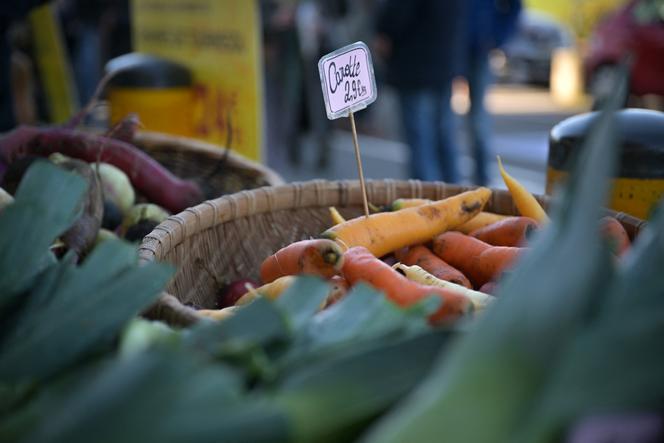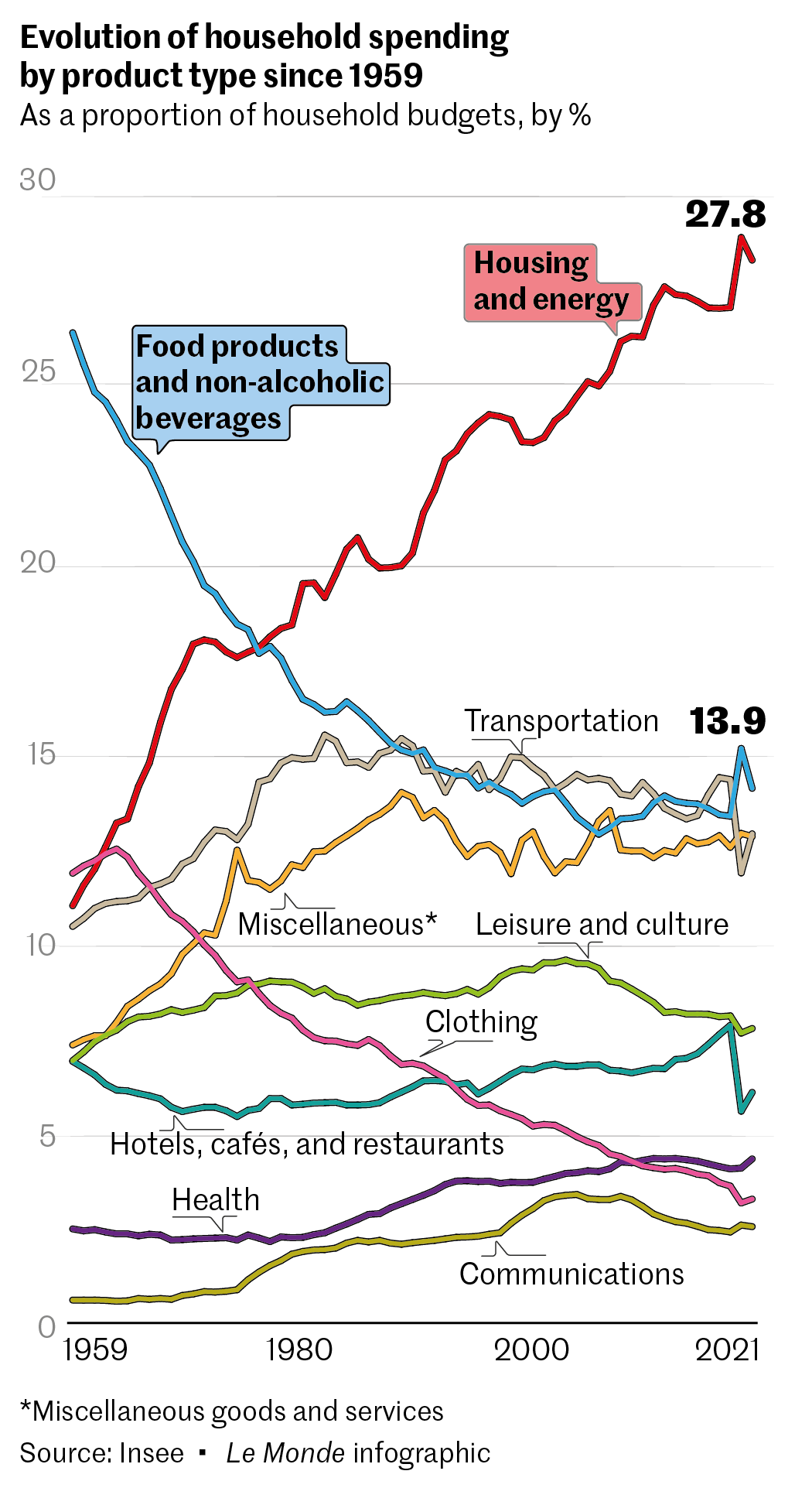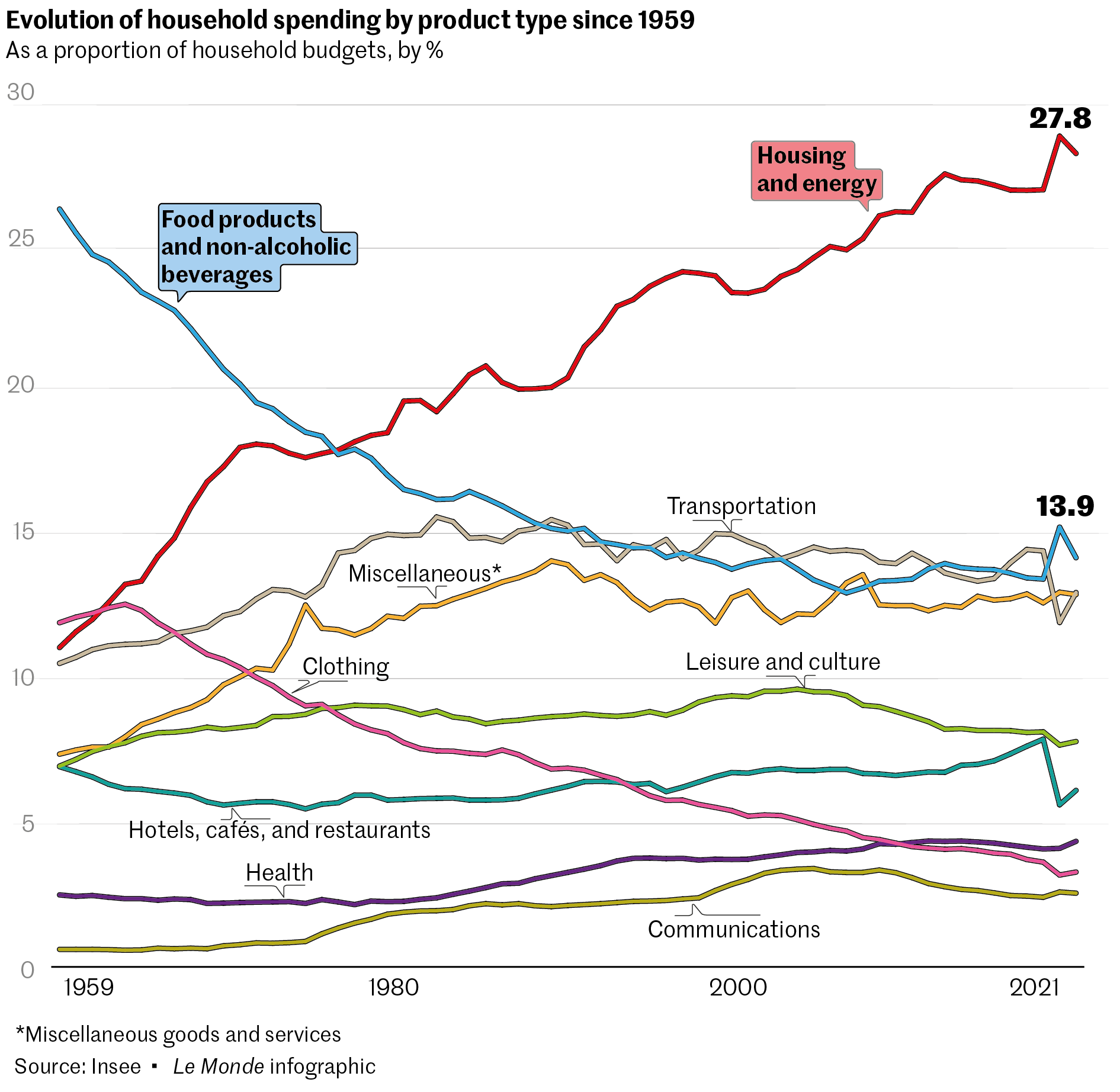


At the start of the 20th century, French textile workers' daily meals consisted of boiled potatoes and cottage cheese spread on thick toast. At the time, food accounted for more than half of household budgets. The economist Jean Fourastié described this in his famous 1979 book Les trente glorieuses ("The glorious thirty"), which coined the nickname for the 30 years of growth in France after the Second World War. A century later, food accounts for 14% of household spending, according to 2021 data from the national statistics institute, INSEE.
Does this mean that in France, the country of 365 cheeses, people would rather pay for a Netflix subscription than to eat properly? On February 24, at the Paris Agricultural Show, President Emmanuel Macron vigorously denied he had suggested just that. The local daily La Marseillaise had reported that in a meeting with farmers' representatives, Macron had said that people earning minimum wage "prefer VOD subscriptions to healthier food."
But Macron had immediately added: "The problem we have in our country today is that the share of income that French people allocate to food has fallen over the last 30 years." He went on: "People are spending more on housing, telephone subscriptions, travel and television. Lifestyles have changed, and they spend proportionately less on food." The report earned Macron accusations of "class contempt" from the left and the far right.


The numbers, however, are on his side – at least in part. Spending on food has fallen the most since the post-war period, along with clothing. This is what economists call "Engel's law," named after the German statistician Ernst Engel, who showed that the proportion of income spent on food declines as people become richer. "This is rather good news," said Philippe Moati, an economic professor at Paris Cité University and founder of the Observatory of Society and Consumption. "People are eating more and better, and the extra income is devoted to other expenses."
Collective enrichment is not the only explanation. The agricultural revolution of the second half of the 20th century, the invention of intensive agriculture, and European Union policies have also enabled food prices to fall drastically, thanks to productivity gains "far greater in agriculture than in industry," said Moati.
The price of a kilo of wheat has been divided by three since 1960, the price of sugar by two, and the price of pork by four, according to Fabrice Etilé, professor at the Paris School of Economics and researcher at the National Research Institute for Agriculture, Food and the Environment. The shift has primarily benefited low-income households, giving them access to a form of food security and abundance. But it has undoubtedly "contributed to people's belief that food is cheap," said Frank Lehuédé, a researcher at the Center for Research for the Study and Observation of Living Standards (CREDOC).
You have 53.33% of this article left to read. The rest is for subscribers only.
